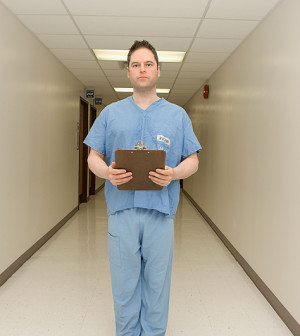- Double Mastectomy May Offer No Survival Benefit to Women With Breast Cancer
- Toxic Lead Found in Cinnamon Product, FDA Says
- Certain Abbott Blood Sugar Monitors May Give Incorrect Readings
- Athletes Can Expect High Ozone, Pollen Counts for Paris Olympics
- Fake Oxycontin Pills Widespread and Potentially Deadly: Report
- Shingles Vaccine Could Lower Dementia Risk
- Your Odds for Accidental Gun Death Rise Greatly in Certain States
- Kids From Poorer Families Less Likely to Survive Cancer
- Tough Workouts Won’t Trigger Cardiac Arrest in Folks With Long QT Syndrome
- At-Home Colon Cancer Test Can Save Lives
Nexavar Approval Expanded for Common Thyroid Cancer


U.S. Food and Drug Administration approval for the anti-cancer drug Nexavar (sorafenib) has been expanded to include late-stage differentiated thyroid cancer, the most common type of thyroid cancer.
In a Friday news release about the approval, the agency said thyroid cancer will be diagnosed in an estimated 60,220 Americans this year, and an estimated 1,850 will die from the disease.
Nexavar is designed to inhibit proteins that prompt cancer cells to divide and grow. The new approval is meant for people with differentiated thyroid cancer that no longer responds to radioactive iodine treatment.
The drug was approved for this new use based on clinical studies involving 417 people whose thyroid cancer did not respond to treatment. The drug increased the time recipients lived without cancer progression by about 41 percent compared to those who took a placebo, the FDA said.
The most common side effects of Nexavar included diarrhea, fatigue, infection, hair loss, skin reactions, weight loss, loss of appetite, abdominal pain and high blood pressure. The agency also warned that increased production of thyroid stimulating hormone — a potential promoter of thyroid cancer — was possible among the drug’s users.
Nexavar was FDA-approved to treat advanced kidney cancer in 2005, followed by approval to treat advanced liver cancer in 2007, the agency said.
The drug is marketed by Bayer HealthCare Pharmaceuticals, based in Wayne, N.J.
More information
Medline Plus has more about thyroid cancer.
Source: HealthDay
Copyright © 2024 HealthDay. All rights reserved.










